
Jon Mangum in the Market
Who can resist liking a smiling, redheaded obruni who is genuinely interest in you?

Jon Mangum in the Market
Who can resist liking a smiling, redheaded obruni who is genuinely interest in you?
Meeting Jon Mangum has been one of the great joys of our mission. Jon is a BYU econimics student who came to Ghana as an intern this summer to study micro-business opportunities and find ways to help Church members seek and upgrade employment. Jon did a similar internship last Fall in Uganda and previously served a mission in Argentina. He has no fear and loves to get involved with 'real' people. Among other things, Jon led surveys of member interests, skills and educational backgrounds; he made contacts and gathered economic and demographic data from the Ghana government; he did case studies of micro-businesses; he researched micro-finance opportunities in Ghana; he studied the production, distribution, marketing and financing of the open street markets and vendors, and he worked with employers to learn how best to supply their personnel needs. His BYU professor oversaw Jon's efforts and visited for a week. Jon also received direction from the Area Welfare Manager and coordinated his work with the Employment Resource Center (ERC). He let us copy his pictures and talked with us about his observations. We are not trying in any way to report his work. We are sure the reports he prepares will be both valuable and interesting. We are just sharing a few pictures of some of his case studies. Overall it was a very interesting summer for Jon, and also for us as we lived a little vicariously through him.
Market Micro-Businesses
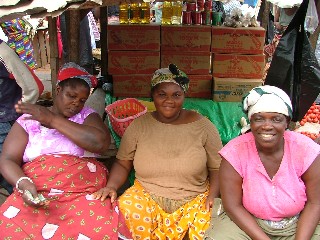
|
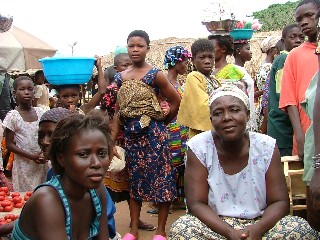
|
| Women at Work in the Market |
Jon's research focused on the lowest levels of the economic chain. |
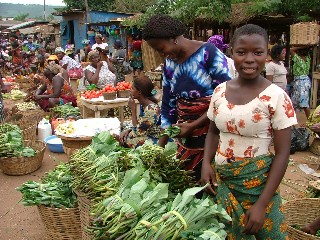
|
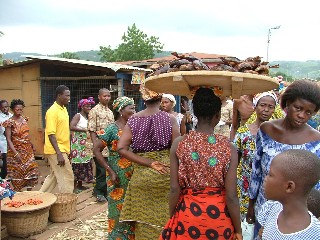
|
| He looked at fresh produce... | ...and prepared goods. |
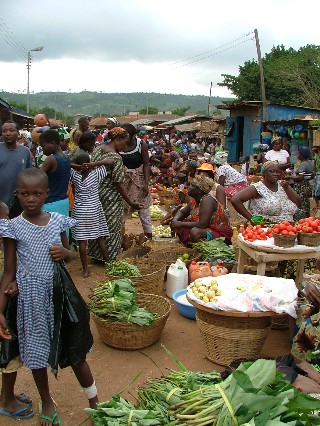
|
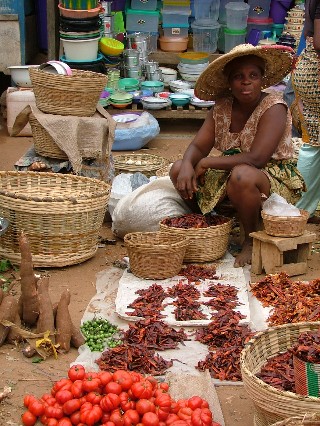
|
| He learned by observation... | and personal interviews. |
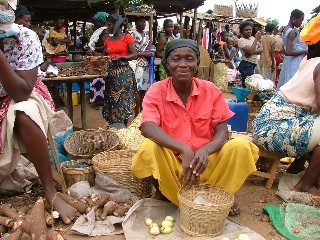
|
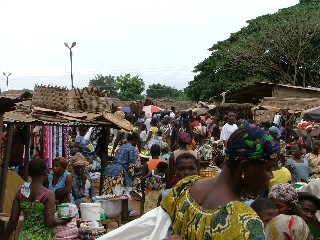
|
| He made many friends, and... | ...became 'at home' in the markets. |
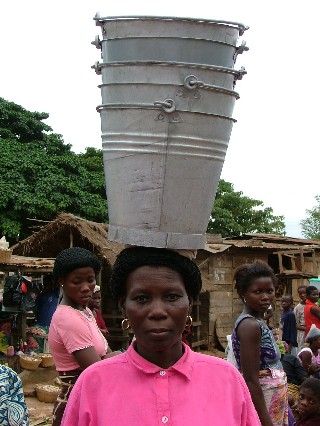
|
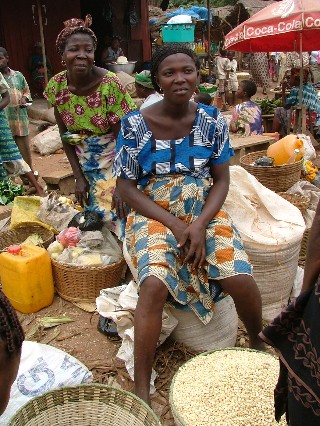
|
| He expressed a deep respect for the... | ...wonderful, hard working women. |
The Rabbit Project
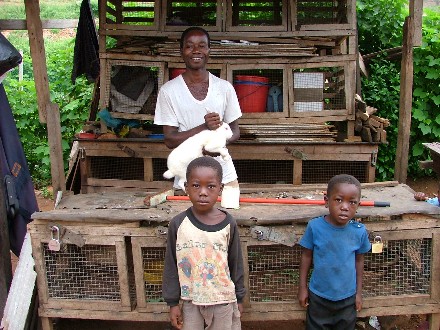
Jon worked with Church Welfare and the ERC to evaluate
and find improvements for a rabbit raising project
that was recently initiated in Ghana.
Jon visited and interviewed the first group of participants in the Church sponsored rabbit raising project. He then visited some successful rabbit projects not associated with the Church. He was able to identify some keys to success and helped train the next group of participants for the Church project, as well as provide valuable feedback to the ERC.
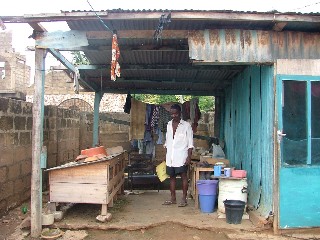
|
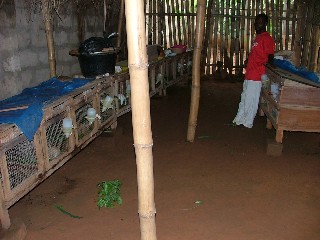
|
| Jon found the success rates of early... | ...participants was quite variable. |
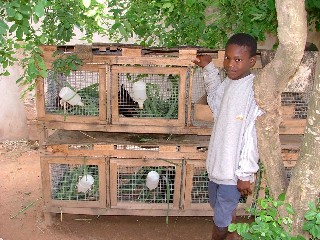
|
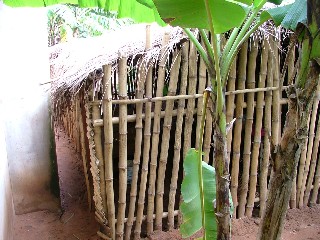
|
| Some were using the hutch design... | ...and some had improvised. |
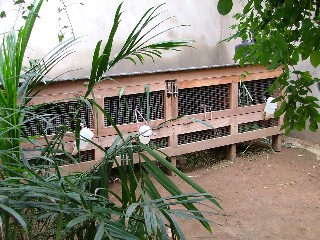
|
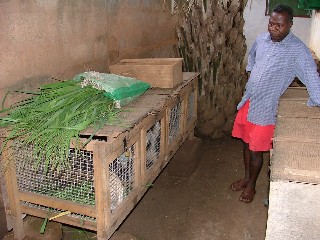
|
| The water supply and... | ...feeding plan was important. |
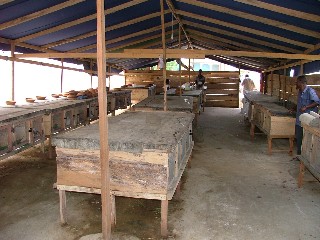
|
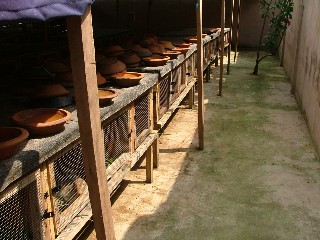
|
| The successful operators were willing... | ...to share their experince and knowledge. |
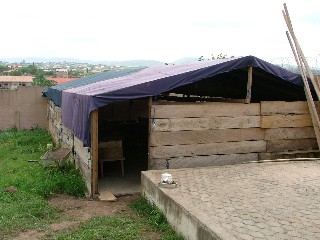
|
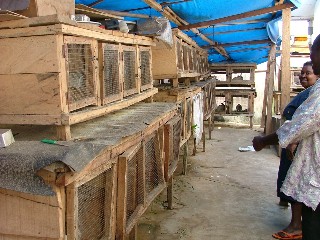
|
|
One member family had started on their own and is doing very well. |
Jon encouraged the Church participants to visit them and learn their approaches. |
Jon is not an experienced farmer and doesn't plan to become one. However, his business and economics training helped him to identify keys to success and enabled him to teach why these keys were so important to the people who are interested in raising rabbits for a living.
The Brick Business
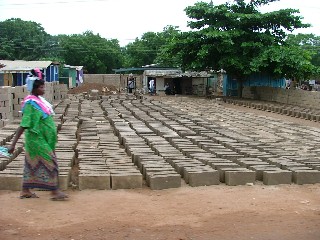
|
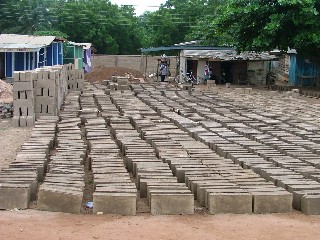
|
|
Bricks made of sand and cement are the prime building material in West Africa. They are inexpensive and resist the climate and insect challenges. |
Jon saw the brick business as a low capital opportunity for someone who was willing to work hard. |
Shopkeepers
One step up from the street market vendors are the shopkeepers. Jon learned that many shopkeepers started as street vendors who planned, saved and moved up to a 'speciality' shop. Margins and competition are tough, so these people develop very acute business skills to survive. Jon really enjoyed talking with them.
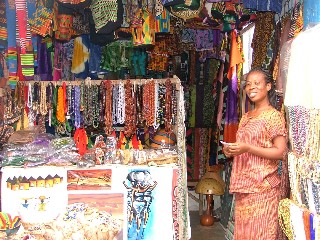
|
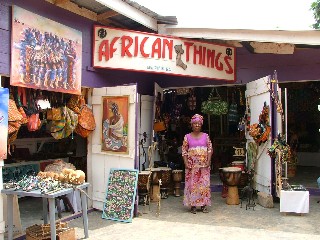
|
|
Jon came to senior missionaries for suggestions of successful shopkeepers to interview. Surprise, surprise, he ended up being friends with Salome... |
...and Abigail, two of Sister Markham's favorite shopkeepers. They are both at "The Pit." They educated Jon about the market systems in Ghana. |
Charcoal Production
Cooking fuel in Ghana is mostly wood or charcoal. In the villages, wood is readily available. In the cities, most people buy charcoal for fuel. The charcoal is produced by villagers and sold to distributors who truck it to the cities. As we ride through the jungle, we see sacks of charcoal ready for pickup all along the roads. We also spend too much time behind overloaded charcoal trucks slowly moving toward the cities on crowded roads. Jon spent some time in a village to learn about charcoal production.
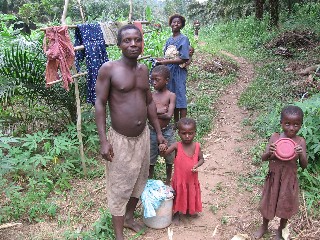
|
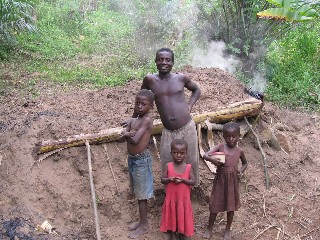
|
|
This village family has one "cash" product: charcoal. |
They gather wood and produce charcoal in hand built "coking furnaces." |
Batik Fabric Production
The senior sister missionaries also sent Jon to study the batik fabric production business. He found a fairly technical set of skills being practiced in almost primitive facilities. There are also artistic skills involved. The product is beautiful and in demand from locals, visitors to Ghana and even European markets.
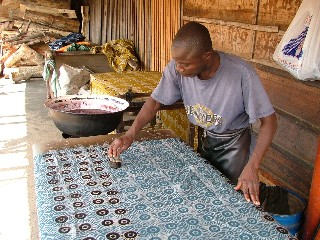
|
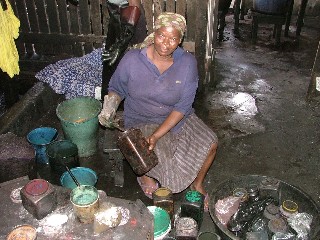
|
| Stamping the wax design on the fabric |
Mixing the dyes from native and commercial sources |
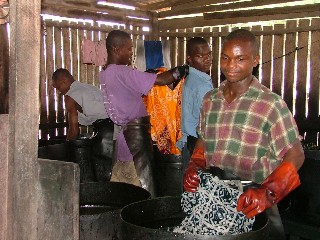
|
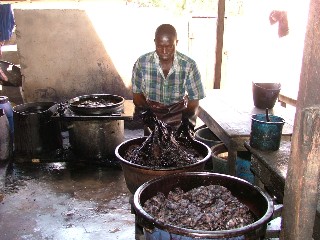
|
| Dyeing large pieces of fabric |
Boiling the wax out, and setting the dye |
Brother Addy's Bakery
We have mentioned Brother Addy's great bread that he brings to the Temple Complex to sell to employees and missionaries each week. Jon visited the bakery and found how Brother Addy has bootstrapped himself into a nice business. The bakery is part of his house.
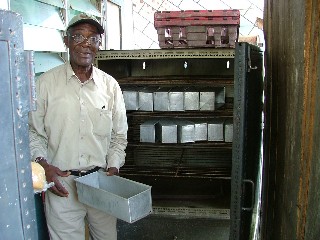
|
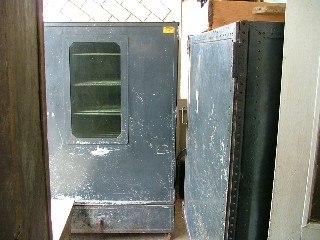
|
| Brother Addy with a simple bread pan | The oven room |
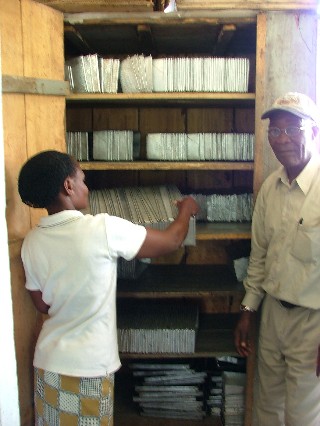
|
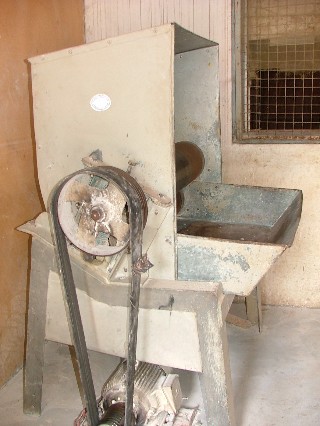
|
| Pan storage | Dough rolling machine |
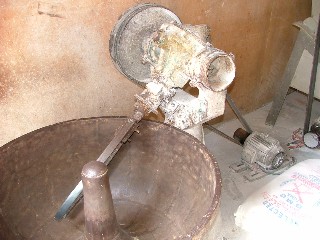
|
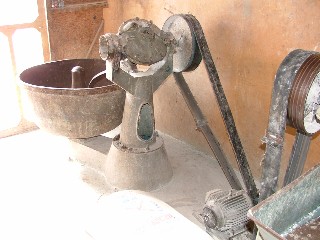
|
|
The mixer Brother Addy designed and helped build the machines he uses. |
Note the car differential used to drive the mixer. These are heavy duty machines built for very low cost. |
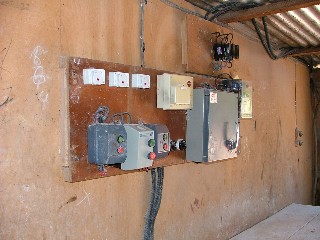
|
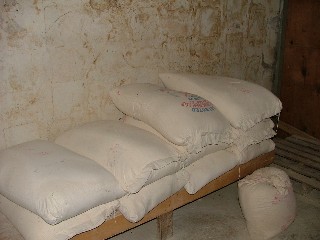
|
| Well organized control panel | Raw material supplies (flour) |
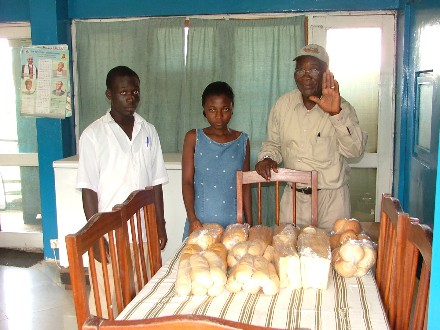
Brother Addy and family employees show their
product and wave to Jon
The Ultimate Tribute About a week before Jon left Ghana, he had to stop using his credit card account due to fraudent use. He had used the credit card to get Ghanaian cash from a bank teller machine, but the exact source of the problem was not known. To be safe, he had his family close the account back home, and he tried to stretch the little money he had to cover the last few days. The word of his situation got to some of his favorite 'case studies.' The result was a tremendous tribute to a young man: these people, whose daily income is a few dollars at most, came to give him food and souvenirs to "help him out." Jon did a good job, but more importantly, he did good while doing his job. He earned the love and respect of the people he was "studying."
So what was Jon's greatest accomplishment this summer?

He and Sara were married in the Mount Timpanogas Temple
on August 20th, just two weeks after he returned from Ghana.
We teased him that his high motivation in Ghana was due to
the alternative of being in the US doing wedding preparations.
Click this button to return to the previous page.